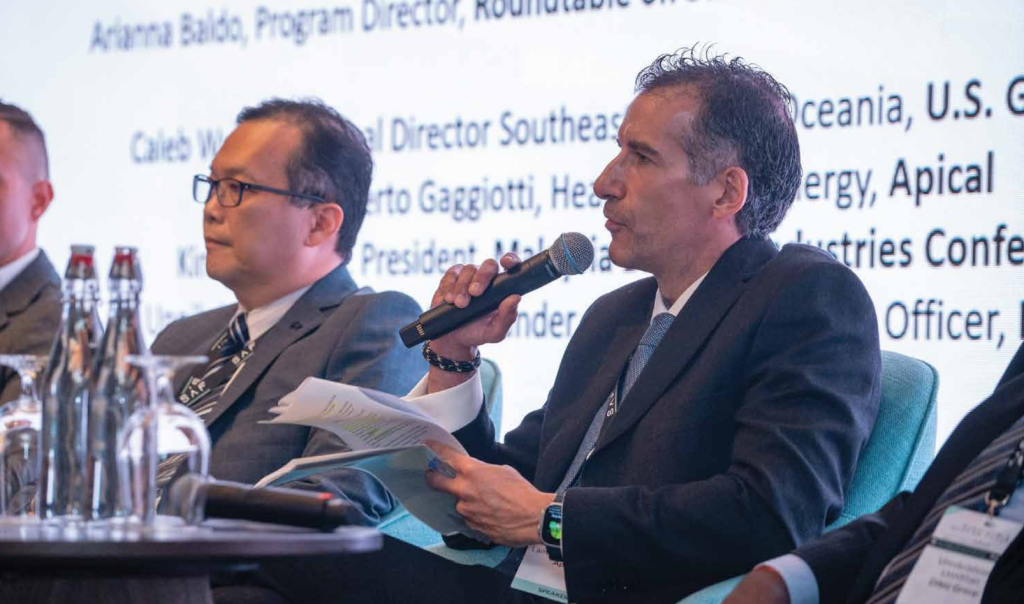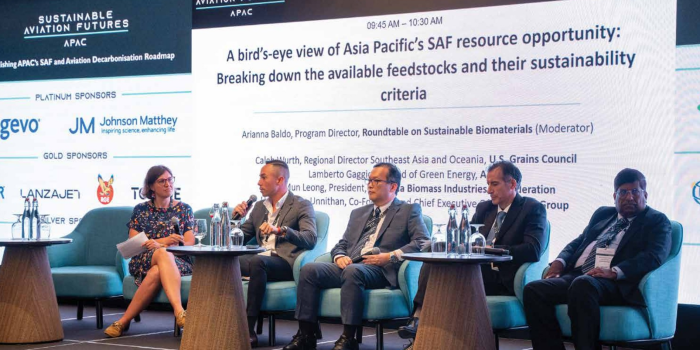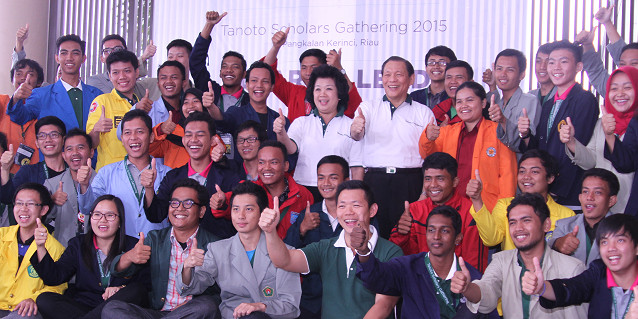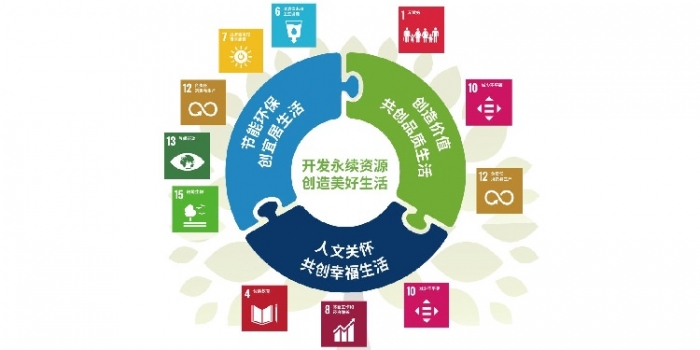In a world where biofuels are in increasing demand, how can Southeast Asia feedstocks support this growing industry, and how do we address the issue of greenwashing? Lamberto Gaggiotti, Head of Green Energy Business at Apical Group, discussed these timely topics at the Sustainable Aviation Futures Congress 2024 held in Singapore, 4-6 November.
In a roundtable discussion moderated by Programme Director Arianna Baldo, Lamberto was joined by Caleb Wurth, Regional Director, Southeast Asia & Oceania, US Grains Council, Unnikrishnan Unnithan, Co-Founder and Chief Executive Officer of Dibiz Group, and Kim Mun Leong, President of the Malaysia Biomass Industries Confederation.
Southeast Asia’s essential role in the biofuels industry
With diverse feedstocks ranging from palm oil to corn, all of which can be used to produce sustainable aviation fuel (SAF), Southeast Asia plays a pivotal role in growing the biofuels industry. The panelists agreed on the need to engage local communities, create valuable incentives to attract financing, and leverage each country’s unique advantages to optimise production.
Lamberto believes a supportive and consistent biofuels policy across the region would place the focus on waste and residue-based feedstocks, which do not compete with food. He added that as a resource-based business with a strong presence and access to agriculture waste and residue feedstocks, Apical is well-positioned to address the industry challenge of sourcing the raw materials needed for SAF production.
He also shared that Apical, in a joint venture with Moeve (formerly known as CEPSA), is building the largest biorefinery processing facility in southern Europe. This facility will commence production in 2026 and produce up to half a million tonnes of SAF and renewable diesel each year, using 2G feedstock such as agricultural waste and used cooking oils supplied by Apical.
Overall, the panelists believe that the region’s strong supply of feedstocks creates opportunities for growth. However, to be impactful in the biofuels industry, the region must find stable solutions for production to remain economically viable, and align on broader carbon reduction goals.
Addressing the potential for sustainable palm oil
The roundtable also confronted “the elephant in the room” – the much-debated issue of sustainability and the traceability of palm oil.
Dibiz Group’s Unnikrishnan Unnithan shared that while palm remains the “poster type” of what the world believes is detrimental to sustainability efforts, significant progress has been made since the early days of the Roundtable on Sustainable Palm Oil (RSPO). He highlighted how there is technology in place addressing these concerns, including real-time traceability solutions and free apps for smallholders. He believes that using technology to enhance traceability has boosted market trust, but reiterated that “everyone in the room” has a shared responsibility to ensure oil palms are grown sustainably.

Lamberto Gaggiotti speaking at the Sustainable Aviation Futures Congress
Adhering to the 3As
Availability, Authenticity and Acceptability, or the 3As, as Lamberto succinctly summarised, will be key in driving the future of Southeast Asia’s biofuels industry. While there is an abundant availability of feedstock in the region, without sufficient investment in equipment and upgrading of infrastructure, this potential cannot be fully optimised or realised. When it comes to authenticity, it is necessary to look at the entire supply chain in terms of both quantity and quality checks on certification and traceability. Finally, acceptability is about sustainability, and Apical is committed to 100% International Sustainability and Carbon Certification (ISCC).
The vital importance of R&D
To conclude the discussion, the moderator asked the panelists what would be their first course of action if given $100 million to support sustainable feedstock development or SAF production in Southeast Asia.
Lamberto pointed out that at this stage, it is crucial for the industry to recognise the vital role of research and technology. “Give the money to the people that do research,” he emphasied. “It’s very important.”







